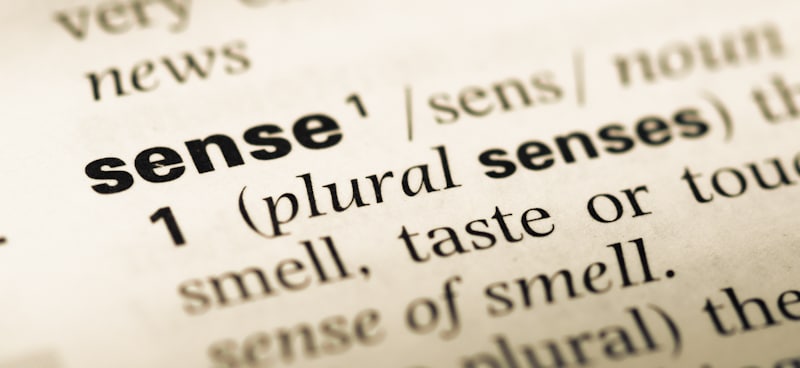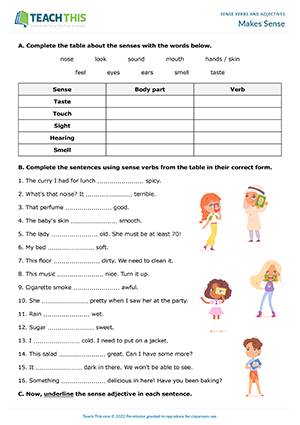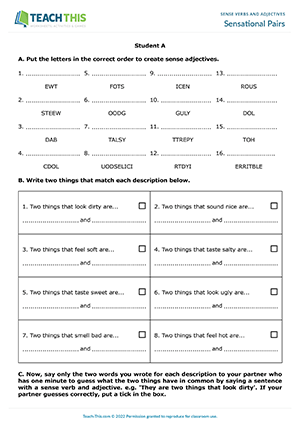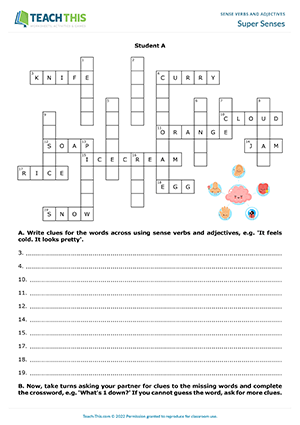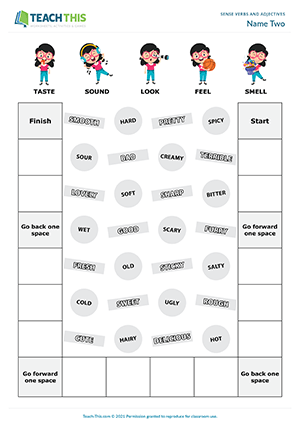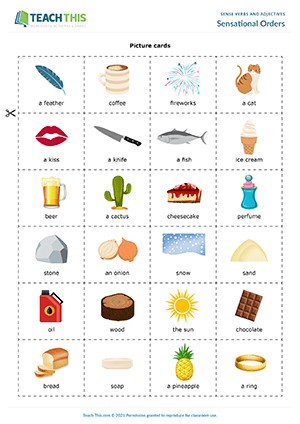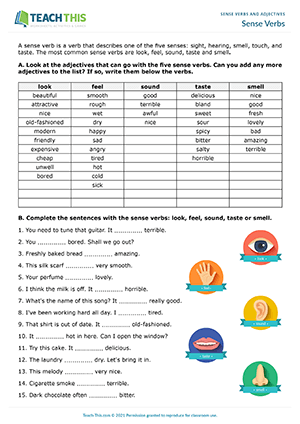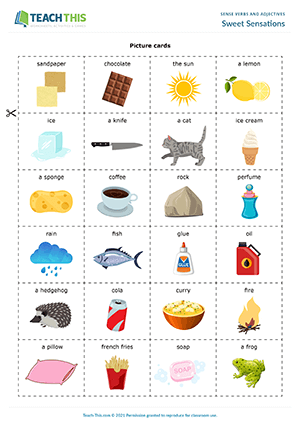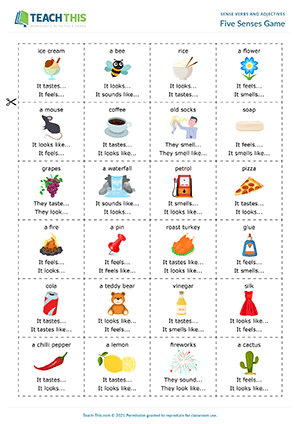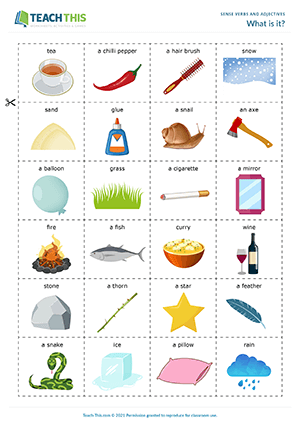Sentences for sense. The sentences below are ordered by length from shorter and easier to longer and more complex. They use sense in a sentence, providing visitors a sentence for sense.
- There was no sense in it. (10)
- All felt a sense of discomfort. (12)
- Do you detect a gleam of sense? (10)
- Ashurst never had much sense of time. (8)
- She had no sense of superiority then. (4)
- I have some primitive sense of honour. (8)
- She had a sudden sense of deep abasement. (8)
- The sight infringed his sense of justice. (8)
- Plain sense, as from gentlemen to gentlemen. (10)
- They had, in the spiritual sense, frail hearts. (10)
- A sense of coming defeat and bereavement was on him. (8)
- I know I can rely on your sense, if you will rely on it. (10)
- Hippias, when he could forget himself, did not lack sense. (10)
- I have still a sense of exhaustion from it in our own case. (9)
- Lord Valleys felt once more that uncanny sense of insecurity. (8)
- And he returned to his own room with a curious sense of peace. (8)
- Appeal and fear were in it, and a sense of personal grievance. (8)
- The sense of triumph and renewed possession swelled within him. (8)
- I had a queasy sense that I wore my last dry clothes upon my body. (2)
- I took you for a woman of too much sense to mix in that foolishness. (13)
- A dog is vastly braver, and is besides supported by the sense of duty. (2)
- Well might common sense cower with the meaner animals at the picture. (10)
- English to the backbone, he could not divest himself of a sense of guilt. (8)
- You reproach us with lack of common sense, as if the belly were its seat. (10)
- She is such an honest, wholesome creature, and so bright and full of sense. (9)
- He would call it an offence against common sense, and have no mercy for it. (10)
- This was disconcerting, being, in a sense, a disorderly way of seeing things. (8)
- But a sense of the distinction between camps and courts restrained the soldier. (10)
- Quite a new sensation; terribly delightful, bringing a sense of completed manhood. (8)
- And, behind it all, the deep tribal sense that they stood together in trouble, grew. (8)
- Elizabeth tried to be diverted by them; but all sense of pleasure was lost in shame. (4)
- And, slowly taking up his glass, Shelton drank; the sense of well-being was upon him. (8)
- And shaking his head with quite a sentimental sense of injury, he departed unrefreshed. (2)
- So long as he had not to meet inquiries or face tears, he enjoyed the sense of security. (10)
- To have been caught thus gazing at himself would have jarred on his sense of what was right. (8)
- From such a perception of her humanity, it was natural that his livelier sense of it should diminish. (10)
- So they met in the park; Mrs. Mount whipped past him; and secresy added a new sense to their intimacy. (10)
- Nothing more, but the look, the voice, were everything; and while I live they cannot pass from my sense. (9)
- The ladies, perhaps from a deficient sense of humor, listened with undisguised displeasure to this speech. (9)
- But he could not, though a smile from his sense of the absurdity of their seriousness hovered about his lips. (9)
- Her sense of hearing was now afflicted in as gross a manner as had been her sense of smell. (10)
- The consideration that one is pursued by fate, will not fail to impart a sense of dignity even to the meanest. (22)
- Harmony always existed, in a limited sense; but it did not take on a scientific development until the Middle Ages. (3)
- He deserves a little credit for seeing that Emilia never could be his mistress, in the debased sense of the term. (10)
- He was watching, with a teasing sense of familiarity, a tall, shabbily dressed, elderly man, who had just come in. (9)
- The clamor and excitement and gross delight of living had numbed his sense of the fine, the noble, the restrained. (13)
- Without compunction, or a sense of incongruity, she abused her brother and assisted the fulfilment of his behests. (10)
- With his faith, whatever its tenets may have been, was implicated his uneasily active conscience; his sense of duty. (2)
- Fiery words of lightning sense Down the hollows thunder; Forest hostels know not whence Comes the speech, and wonder. (10)
- I could not even make her share my sense of my own culpability, a thing she was only too willing to do in most matters. (9)
- Drink the sense the notes infuse, You a larger self will find: Sweetest fellowship ensues With the creatures of your kind. (10)
- And he did not feel any special sense of obligation toward his employer, who had never displayed any great confidence in him. (13)
- Miss Crawford need not have urged secrecy with so much warmth; she might have trusted to her sense of what was due to her cousin. (4)
- But Bob Pillin was gone, leaving the lawyer with a very red face, a very angry heart, and a vague sense of disorder in his speech. (8)
- I am going to-morrow where I shall find a man who has not one agreeable quality, who has neither manner nor sense to recommend him. (4)
- I felt so intensely sensitive, that the very idea of a snore gave me tremours and qualms: it was associated with the sense of fat. (10)
- Irish anecdotes are always popular in England, as promoting, besides the wholesome shake of the sides, a kindly sense of superiority. (10)
- She was less handsome than her brother; but there was sense and good humour in her face, and her manners were perfectly unassuming and gentle. (4)
- When I read his version my sense aches for the rhyme which he rejected, but my admiration for his fidelity to Dante otherwise is immeasurable. (9)
- The new warmth and singing in her heart had not destroyed, but rather heightened, her sense of the extraordinary interest of all things that be. (8)
- In such men there is little or none of that fluid sense and continuity of feeling known under those vague terms, speculation, poetry, philosophy. (8)
- Then he remembered noticing them, and started with a sense of recognition, which he verified by the hotel register when he had finished his meal. (9)
Also see sentences for: drollery, feeling, flavor, import, meaning, perception, recognize.
Glad you visited this page with a sentence for sense. Now that you’ve seen how to use sense in a sentence hope you might explore the rest of this educational reference site Sentencefor.com to see many other example sentences which provide word usage information.
More Sentence Examples
Select First Letter
Choose one of the given words for each sentence and use them in a sentence for it to make sense.
Remember to change the form to make present continuous sentences.
(to swim) (to swap) (to go) Это глаголы на выбор (to save) 1.
We are pictures.
2. I am in the lake.
3. My parents are money for a new car.
4. David is to the gym.
Вы открыли страницу вопроса Choose one of the given words for each sentence and use them in a sentence for it to make sense?. Он относится к категории
Английский язык. Уровень сложности вопроса – для учащихся 5 — 9 классов.
Удобный и простой интерфейс сайта поможет найти максимально исчерпывающие
ответы по интересующей теме. Чтобы получить наиболее развернутый ответ,
можно просмотреть другие, похожие вопросы в категории Английский язык,
воспользовавшись поисковой системой, или ознакомиться с ответами других
пользователей. Для расширения границ поиска создайте новый вопрос, используя
ключевые слова. Введите его в строку, нажав кнопку вверху.
Sometimes, when two words sound alike, it is easy to misspell them. In oral language, homophone words can go unnoticed. However, when writing these terms, it can get confusing to know which one to use. Which of them is the correct spelling between «sense» and «sence?»
The word «sense» is the correct spelling when referring to how we perceive external stimuli. The term «sence» does not exist and is a misspelling and archaic word for «sense.» «Sence» was also an alternative spelling of «since,» but it is considered slang.
Follow us to examine the origin and meaning of these two terms and how to use them in written language properly. In this article, we will also explain what homophones words refer to and the cause of the confusion when spelling these two terms.
What Does «Sense» Mean?
Sense As A Noun
As a noun, the Oxford Language dictionary defines «sense» as «a faculty by which the body perceives an external stimulus; one of the faculties of sight, smell, hearing, taste, and touch.» In the same way, we can say that «sense» is the ability to understand, recognize, value, or react to something. We can say that «sense» is what we use to perceive the outside world. For example:
- I have a very developed sense of hearing, making it easy for me to understand music.
- That man has a high sense of smell. He can identify ingredients in a meal only by smelling them.
- Dogs have a keen sense of smell.
- Taste is one of the five senses.
- Eagles have a highly developed sense of sight which allows them to spot their prey.
- Eagle eyesight is eight times more powerful than the average human’s.
- Birds do not have a strong sense of hearing.
- We don’t have to have an excellent sense of smell to tell if someone is a smoker.
- Covid-19 makes people lose their sense of smell or taste.
- When we are in danger, our senses are heightened so that we can take action.
- Scientists argue that cats’ have a high sense of direction.
- That guy acted like he was crazy. He lost his senses when finding out about her cheating wife.
Similar And Related Terms
- Sensation
- Perception
- Sight
- Hearing
- Touch
- Taste
- Smell
- Sixth sense
- Sensibility
Also, as a noun, «sense» describes «the characteristic of having good judgment, especially when it is based on practical ideas or understanding.» In other words, people can judge a situation or event reasonably based on socially accepted norms. Its origin is from late Middle English. For example:
- It doesn’t make sense to wear a coat during summer.
- They love each other, and they give each other a sense of security.
- Some people may say that love doesn’t make sense, but I think otherwise.
- Life makes sense to me when I’m playing my guitar.
- It makes no sense to assume something is true before investigating.
- How does life make sense? There are different opinions about it, but the best way is to do what you love and be yourself.
- As the saying goes, «common sense is not as common as you guess.»
- It makes no sense to use the term «sence» in a sentence.
- A mature person shows good sense when making decisions.
- The event brought her to her senses and made her change her lifestyle.
- It makes sense to think before speaking to avoid any further issues.
Sense As A Verb
As a verb, «sense» means «perceived by a sense or senses.» It is to experience something without being able to explain precisely how: It describes having a «gut feeling» about something. For example:
- Sometimes, I sense something terrible is going to happen.
- When something terrible happens, mothers can sense it and are never wrong.
- The speaker sensed the audience was bored, and he changed his speech.
- I sensed my brother was hiding something. So I pressed him to find out what it was.
- They were trying to deny it, but he could sense something was wrong.
- She continuously senses that someone is watching her when she walks in the street.
- He spoke with his boss because he sensed he was going to fire him.
- Automatic doors «sense» people’s presence and are opened.
- I sensed someone was behind me, but I was the only person in the room.
Similar And Related Terms
- Discern
- Feel
- Observe
- Notice
- Recognize
- Pick up
- Tell
- Distinguish
- Find
- Identify
- Comprehend
- See
- Apprehend
- Discover
- Learn
- Appreciate
- Realize
- Suspect
- Intuit
- Conceive
- Catch onto
History And Etymology
The verb «sense» dates from the mid 16th century. It comes from the Latin sensus «faculty of feeling, thought, meaning,» from sentire «feel.»
What Does «Sence» Mean?
The form «sence» is not a recognized word in a formal context. This word is a misspelling or an obsolete form of the word «sense,» usually used in an informal context, to replace the word «since.»
But What Are Homonyms?
The terms «sense» and «sence» are homonyms. Homonyms words are words that sound the same but have different meanings, and are spelled differently. Since they sound alike, it is easy for people to confuse their spelling when using them in written language.
In a broader sense, homonyms are words with similarities in the way we pronounce or spell them. You can classify them as homographs and homophones.
Homographs are words that are spelled the same way regardless of pronunciation but have different meanings. For example:
- Sow as a verb refers to planting a seed.
- Sow as a noun is a female pig.
- Bear is to support or carry something.
- Bear, as a noun, is an animal.
Homophones are words pronounced the same but have different meanings and may also be spelled differently. For example:
- Weather is the state of the atmosphere.
- The term «whether» is used to express a choice between alternatives.
The following examples illustrate other homophones words that we commonly confuse:
Then/than
«Then» is an adverb that describes an event that takes place after another.
- I went to the supermarket, and then I called a cab to pick me up.
«Than» is a preposition used to compare things.
- John is taller than his brother.
To/Too/two:
«To» is an adverb to indicate movement.
- He took his bike to a repair shop to have it cleaned.
«Too» is an adverb that means something is exaggerated, and we also use it to describe that something else happens in addition to another thing.
- The earrings are too expensive.
- Gloria needs new shoes too.
«Two» is a number
- I don’t understand why you need to have two phones.
By/Buy:
«By» is a preposition that identifies the person that acts.
- I was interrupted by the teacher.
«Buy» is a synonym for purchase.
- I’m looking to buy an apartment next year.
There is also another category known as pseudo-homophones within homophone words that can explain the confusion between «sense» and «sence». When two homophones are considered pseudo-homophones, they sound the same, but one is not a recognized word or is an ancient form of the other term. In this case, the word «sence» is an obsolete way to spell «sense» and should not be used formally.
Conclusion
As mentioned above, «sense» and «sence» are homophone words that are considered pseudo-homophones. These pair words sound alike but have different spelling, and the word «sence» is not an actual word, but it is usually used in colloquial language referring to the preposition «since.» When you face this type of issue, we suggest investigating these similar words and identifying if they make sense within their context to ensure you are using the correct spelling.
Shawn Manaher is the founder and CEO of The Content Authority. He’s one part content manager, one part writing ninja organizer, and two parts leader of top content creators. You don’t even want to know what he calls pancakes.
- Join our Team
- Online Platform Tutorial
- TEFL Courses
- Contact Us / FAQ
- Grammar
- Adverbial Clauses
- Adverbial Phrases
- Be Going To Statements
- Be Going To Wh Questions
- Be Going To Yes/No Questions
- Be Going To & Present Continuous
- Comparatives
- Superlatives
- Comparatives & Superlatives
- Zero Conditional
- First Conditional
- Second Conditional
- Third Conditional
- Mixed Conditionals
- Future Continuous
- Future Continuous vs. Future Perfect
- Future Perfect Continuous
- Future Perfect Simple
- Future Simple
- Future Time Clauses
- Mixed Future Tenses
- Gerunds & Infinitives
- Have Got & Has Got
- I wish & If only
- Imperatives
- Irregular Verbs
- Narrative Tenses
- Noun Clauses
- Noun Phrases
- Passive Voice
- Past Continuous
- Past Perfect
- Past Perfect Continuous
- Past Perfect Simple & Continuous
- Past Simple Affirmative & Negative
- Past Simple Passive
- Past Simple Regular Verbs
- Past Simple vs. Past Continuous
- Past Simple Was and Were
- Past Simple Wh Questions
- Past Simple Yes/No Questions
- Past Tense Review
- Present Continuous
- Present Perfect
- Present Perfect Continuous
- Present Perfect — Ever and Never
- Present Perfect — For and Since
- Present Perfect — Just, Yet & Already
- Present Perfect vs. Past Simple
- Present Simple Affirmative & Negative
- Present Simple Passive
- Present Simple vs. Present Continuous
- Present Simple Wh Questions
- Present Simple Yes/No Questions
- Present Tense Review
- Question Words
- Relative Clauses
- Reported Speech
- Subject-Verb Agreement
- Tag Questions
- There is & There are
- Used to
- Verb to be
- Wh Questions
- Parts of Speech
- Abstract Nouns
- Adjectives
- Adjective-Noun Collocations
- Adjectives of Feeling & Emotion
- Adjectives of Opinion
- Adjectives of Quantity
- Adjective Opposites
- Adjective Order
- Adjective-Preposition Collocations
- -ed and -ing Adjectives
- Adverb-Adjective Collocations
- Adverb Order
- Adverbs of Affirmation & Negation
- Adverbs of Degree
- Adverbs of Frequency
- Adverbs of Manner
- Adverbs of Place
- Adverbs of Time
- Articles — a, an, the
- Causative Verbs
- Collective Nouns
- Common & Proper Nouns
- Compound Adjectives
- Compound Nouns
- Concrete Nouns
- Conjunctions
- Countable & Uncountable Nouns
- Demonstrative Adjectives
- Demonstrative Pronouns
- Dependent Prepositions
- Indefinite Pronouns
- Intensifiers & Mitigators
- Interjections
- Modal Verbs of Ability
- Modals of Deduction & Speculation
- Modals of Necessity
- Modals of Obligation & Prohibition
- Modals of Possibility & Certainty
- Onomatopoeia
- Parts of Speech
- Phrasal Verbs
- Possessives
- Prefixes
- Prepositions of Movement
- Prepositions of Place
- Prepositions of Time
- Proper Adjectives
- Quantifiers
- Reflexive Pronouns
- Sense Verbs and Adjectives
- Singular & Plural Nouns
- So and Such
- Subject & Object Pronouns
- Suffixes
- Too and Enough
- Transition Words
- Verb-Noun Collocations
- Verbs
- Functional Language
- Agreeing & Disagreeing
- Air Travel
- Asking Permission
- At the Dentist’s
- At the Doctor’s
- Being Polite
- Classroom Language
- Complaining & Apologizing
- Complimenting
- Critical Thinking & Problem Solving
- Describing Character & Personality
- Describing People’s Appearance
- Describing Places
- Describing Things
- Emailing
- Etiquette and Manners
- Getting Around
- Getting to Know You
- Giving Advice
- Giving Directions
- Giving Opinions
- Giving Personal Information
- Greetings & Introductions
- Holidays
- Indirect Questions
- Likes and Dislikes
- Making Arrangements
- Making Decisions
- Making Excuses
- Making Invitations
- Making Offers & Promises
- Making Requests
- Making Suggestions
- Online Communication
- Ordering Food & Drink
- Shopping
- Small Talk
- Social Media
- Telephoning
- Times and Dates
- Travel
- General English
- Animals
- Christmas
- Cities & Towns
- Clothes & Fashion
- Colours
- Computers & Smartphones
- Countries & Nationalities
- Crime, Law & Punishment
- Cultural Celebrations
- Easter
- Family & Relationships
- Food & Drink
- Going Out & Entertainment
- Halloween
- Health & Fitness
- Hobbies & Free Time
- Houses, Rooms & Furniture
- Idioms
- Jobs & the Workplace
- Modes of Transport
- Money
- Music
- Numbers
- Parts of the Body
- Reading Comprehension
- Seasons
- Space
- Sports
- The Natural World
- Time Expressions
- TV & Film
- Valentine’s Day
- Weather
- Academic English
- Academic Collocations
- Academic Reading Comprehension
- AWL Sublist 1 & 2
- Cause and Effect Essays
- Compare and Contrast Essays
- Debating
- Discussion Essays
- Discussions
- Essay Writing
- Paragraph Writing
- Persuasive Essays
- Presentation Skills
- Problem Solution Essays
- Punctuation
- Reading Skills
- Referenced Essays
- Study Skills
- The Writing Process
- Business English
- Business Emails
- Business Meetings
- Business Negotiations
- Talking About Jobs
- Games
- Answer Games
- Brainstorming Games
- Category Games
- Classic Childhood Games
- Counting Games
- Describing Games
- Drawing Games
- Drilling Activity Games
- First Day of Class Games
- Flashcard Games
- Grammar Games
- Hangman Games
- Listening Games
- Miming Games
- Music Games
- Question & Answer Games
- Quiz Games
- Sentence Race Games
- Spelling Games
- TV Game Shows
- Verb Games
- Vocabulary Games
- Word Association Games
- Word Games
- Yes/No Question Games
- Ideas
- Classroom Interaction Patterns
- Classroom Management
- Concept Checking
- Cultural Awareness
- Developing Students’ Listening Skills
- Developing Students’ Reading Skills
- Developing Students’ Speaking Skills
- Eliciting Techniques
- ESL Dictations
- How to Introduce a Lesson
- How to Use Music in ESL Class
- Lesson Planning
- Making Teaching Materials Relevant
- Problems Learning English
- Teaching English Idioms
- Teaching English Vocabulary
- Teaching Large Classes
- Teaching Mixed-Ability Classes
- Teaching Small Classes
- The First Day of Class
- Using Correction in Class
- Using Song Gap Fills
- Membership
- Online Membership
- ESL Essentials eBook Series
Sense Verbs and Adjectives ESL Games, Activities and Worksheets
- Pre-intermediate (A2)
- Intermediate (B1)
- Upper-intermediate (B2)
Makes Sense
ESL Sense Verbs and Adjectives Worksheet — Vocabulary Exercises: Table Completion, Gap-fill, Matching, Error Correction — Pre-intermediate (A2) — 25 minutes
In this sense verbs and adjectives worksheet, students learn and practice how to use the verbs taste, feel, look, sound and smell with sense adjectives. First, students complete a five senses table using words from a box. Next, students complete sentences using sense verbs from the table in their correct form. Students then underline the sense adjective in each sentence. After that, students write the senses that certain adjectives are usually associated with. Students then complete sentences using some of the sense adjectives from Exercise B. Students then move on to match each sense adjective from a box with its opposite from the sentences. Lastly, students correct errors in sentences that contain sense verbs and adjectives.
Sensational Pairs
ESL Sense Verbs and Adjectives Activity — Vocabulary Exercises: Unscrambling, Gap-fill — Speaking Game: Forming Sentences from Prompts, Guessing — Pair Work — Pre-intermediate (A2) — 25 minutes
In this sense verbs and adjectives activity, students unscramble sense adjectives and then use them in a guessing game along with the sense verbs look, feel, taste, smell and sound. Students begin by unscrambling letters to create sense adjectives. Next, students write two things that match the description in each box. After that, students play a guessing game with a partner using the sense adjectives and the sense verbs look, feel, taste, smell and sound. Students take it in turns to say only the two words they wrote for each description to their partner who has one minute to guess what the two things have in common by saying a sentence with a sense verb and adjective. e.g. ‘They are two things that smell nice’. If their partner guesses correctly within one minute, the student puts a tick in the box. The student with the most correct guesses at the end of the game wins.
Super Senses
ESL Sense Verbs and Adjectives Activity — Vocabulary and Speaking: Writing Crossword Clues, Describing, Guessing — Group and Pair Work — Pre-intermediate (A2) — 25 minutes
In this sense verbs and adjectives activity, students describe words with sensory verbs and adjectives for a partner to guess in order to complete a crossword. In two groups, students invent and write down clues to the words shown on their crossword using sense verbs and adjectives, e.g. ‘It feels cold. It looks pretty.’ Next, students pair up with someone from the other group and take turns asking their partner for clues to their missing words. Their partner reads out the clue for each word, and the other student tries to guess what it is. If the student guesses the word successfully, they write it on their crossword. If not, their partner continues to give more clues until they guess the word. This continues until both students have completed their crosswords.
Name Two
ESL Sensory Adjectives Game — Vocabulary and Speaking: Naming, Forming Sentences — Group Work — Intermediate (B1) — 25 minutes
In this five senses board game, students name two things that match with sensory adjectives. One team member starts by picking up a card and asking their partner to name two things that match the sensory adjective on the card, e.g. ‘Name two things that feel rough’. Their partner then has one minute to say two things using the sense verb and adjective, e.g. ‘Two things that feel rough are a coconut and coral.’ If the team member names two things successfully, they roll the dice and move their team’s counter along the board. If not, the team remains on the same square. It’s then the other team’s turn to play. The first team to reach the ‘Finish’ square wins the game.
Sensational Orders
ESL Sense Adjectives and Verbs Game — Vocabulary and Speaking: Describing, Matching, Asking and Answering Questions — Pair Work — Intermediate (B1-B2) — 30 minutes
In this free sense adjectives and verbs game, students order pictures by listening to descriptions of how the items look, feel, taste and smell. Student A places their picture cards in a random order on a number board. The aim of the game is for Student B to arrange the pictures in the same order as their partner. Student A begins by describing the picture in square one by saying what the item looks like, feels like, smells like or tastes like. Student B listens and finds a matching picture, placing it over square one. The two students do this without revealing their answers. If Student B is unsure, they can ask more questions, e.g. ‘What does it look/feel/taste/smell like?’ Student A continues describing each picture in turn until Student B’s board is complete. Student A then reveals the answer for each numbered square. Student B scores one point for each correct match. The two students then swap roles and repeat the game. The student with the most points at the end of the game wins.
ESL Sense Verbs Worksheet — Vocabulary Exercises: Table Completion, Gap-fill, Sentence Completion — Speaking Activity: Forming Sentences, Freer Practice — Pair Work — Intermediate (B1) — 30 minutes
In this rewarding sensory verbs worksheet, students learn and practice sense verbs and adjectives. Students begin by reading about sense verbs (look, feel, sound, taste and smell) and the adjectives that can be used with each one. Students then brainstorm other adjectives that can go with the five sense verbs and add them to a list. Next, students complete sentences with the sense verbs: look, feel, sound, taste or smell. Students then move on to look at pictures and complete sentences with suitable adjectives. Finally, in pairs, students take it in turns to describe items using sense verbs and adjectives as appropriate.
Sweet Sensations
ESL Sensory Adjectives Games — Vocabulary and Speaking: Pelmanism, Matching, Describing, Guessing — Group Work — Intermediate (B1) — 30 minutes
In these two sense adjective games, students play a matching game where they match sense adjectives to pictures and then play a describing game in which they describe the pictures in terms of how the things feel, taste, smell and look. In groups, students take it in turns to turn over a sensory adjective card and a picture card. If the sensory adjective matches with the word on the picture card, the student keeps the two cards and has another turn. If the cards don’t match, the student turns them back over. The student with the most cards at the end of the game is the winner. Students then move on to play a describing game with the picture cards. Students take it in turns to choose one of their picture cards. The other group members ask the student questions about what the thing on the card feels like, tastes like, smells like and looks like, e.g. ‘What does it feel like?’ The student answers accordingly, e.g. ‘It feels rough’. The first group member to correctly guess the word on the card wins and keeps the card. The student with the most cards at the end of the game wins.
Five Senses Game
ESL Sense Adjectives and Verbs Game — Vocabulary: Describing, Guessing — Group Work — Upper-intermediate (B2) — 25 minutes
Here is a five senses game to help students practice sensory verbs and adjectives. In groups, students take it in turns to pick up a card and describe the word on the card to the group using the two prompts on the card and then adding more clues. For example, if the word is ‘ice cream’, the student might say: It tastes sweet and creamy. It feels cold. It can also taste fruity or chocolaty, etc. The first student to correctly guess what is being described wins and keeps the card. The student with the most cards at the end of the game wins.
What is it?
ESL Sense Adjectives and Verbs Game — Vocabulary: Describing Things, Guessing — Group Work — Upper-intermediate (B2) — 30 minutes
In this fun sense adjectives and verbs game, students describe different things using sensory adjectives and verbs for others to guess. In groups, students look at their cards and think about how they could describe the things on their cards in terms of how they look, feel, taste, sound and smell. After preparing their descriptions, students take it in turns to describe one of their picture cards to the group, e.g. ‘It can be various colours. It tastes very sweet. It doesn’t make any noise. It feels soft and sticky. It usually looks round, but it can be other shapes.’ The first student to correctly guess what is being described (e.g. cake) wins and keeps the card. If the group members are unable to make a correct guess after one minute, the student describing keeps the card. The student with the most cards at the end of the game is the winner.
- Home
- Grammar
- Adverbial Clauses
- Adverbial Phrases
- Be Going To Statements
- Be Going To Wh Questions
- Be Going To Yes/No Questions
- Be Going To & Present Continuous
- Comparatives
- Superlatives
- Comparatives & Superlatives
- Zero Conditional
- First Conditional
- Second Conditional
- Third Conditional
- Mixed Conditionals
- Future Continuous
- Future Continuous vs. Future Perfect
- Future Perfect Continuous
- Future Perfect Simple
- Future Simple
- Future Time Clauses
- Mixed Future Tenses
- Gerunds & Infinitives
- Have got & Has got
- I wish & If only
- Imperatives
- Irregular Verbs
- Narrative Tenses
- Noun Clauses
- Noun Phrases
- Passive Voice
- Past Continuous
- Past Perfect
- Past Perfect Continuous
- Past Perfect Simple & Continuous
- Past Simple Affirmative & Negative
- Past Simple Passive
- Past Simple Regular Verbs
- Past Simple vs. Past Continuous
- Past Simple Was and Were
- Past Simple Wh Questions
- Past Simple Yes/No Questions
- Past Tense Review
- Present Continuous
- Present Perfect
- Present Perfect — Ever and Never
- Present Perfect — For and Since
- Present Perfect — Just, Yet & Already
- Present Perfect vs. Past Simple
- Present Perfect Continuous
- Present Simple Affirmative & Negative
- Present Simple Passive
- Present Simple vs. Present Continuous
- Present Simple Wh Questions
- Present Simple Yes/No Questions
- Present Tense Review
- Question Words
- Relative Clauses
- Reported Speech
- Subject-Verb Agreement
- Tag Questions
- There is & There are
- Used to
- Verb to be
- Wh Questions
- Parts of Speech
- Abstract Nouns
- Adjectives
- Adjective-Noun Collocations
- Adjectives of Feeling & Emotion
- Adjectives of Opinion
- Adjectives of Quantity
- Adjective Opposites
- Adjective Order
- Adjective-Preposition Collocations
- -ed and -ing Adjectives
- Adverb-Adjective Collocations
- Adverb Order
- Adverbs of Affirmation and Negation
- Adverbs of Degree
- Adverbs of Frequency
- Adverbs of Manner
- Adverbs of Time
- Adverbs of Place
- Articles — a, an, the
- Causative Verbs
- Collective Nouns
- Common & Proper Nouns
- Compound Adjectives
- Compound Nouns
- Concrete nouns
- Conjunctions
- Countable & Uncountable Nouns
- Demonstrative Adjectives
- Demonstrative Pronouns
- Dependent Prepositions
- Indefinite Pronouns
- Intensifiers & Mitigators
- Interjections
- Modal Verbs of Ability
- Modals of Deduction & Speculation
- Modals of Necessity
- Modals of Obligation & Prohibition
- Onomatopoeia
- Modals of Possibility & Certainty
- Parts of Speech
- Phrasal Verbs
- Possessives
- Prefixes
- Prepositions of Movement
- Prepositions of Place
- Prepositions of Time
- Proper Adjectives
- Quantifiers
- Reflexive Pronouns
- Sense Verbs & Adjectives
- Singular & Plural Nouns
- So and Such
- Subject & Object Pronouns
- Suffixes
- Too and Enough
- Transition Words
- Verb-Noun Collocations
- Verbs
- Functional Language
- Agreeing & Disagreeing
- Air Travel
- Asking Permission
- At the Dentist’s
- At the Doctor’s
- Being Polite
- Classroom Language
- Complaining & Apologizing
- Complimenting
- Critical Thinking & Problem Solving
- Describing Character & Personality
- Describing People’s Appearance
- Describing Places
- Describing Things
- Emailing
- Etiquette and Manners
- Getting Around
- Getting to Know You
- Giving Advice
- Giving Directions
- Giving Opinions
- Giving Personal Information
- Greetings & Introductions
- Holidays
- Indirect Questions
- Likes and Dislikes
- Making Decisions
- Making Arrangements
- Making Excuses
- Making Invitations
- Making Offers & Promises
- Making Requests
- Making Suggestions
- Online Communication
- Ordering Food & Drink
- Shopping
- Small Talk
- Social Media
- Telephoning
- Times and Dates
- Travel
- General English
- Animals
- Christmas
- Cities & Towns
- Clothes & Fashion
- Colours
- Computers & Smartphones
- Countries & Nationalities
- Crime, Law & Punishment
- Cultural Celebrations
- Easter
- Family & Relationships
- Food & Drink
- Going Out & Entertainment
- Halloween
- Health & Fitness
- Hobbies & Free Time
- Houses, Rooms & Furniture
- Idioms
- Jobs & the Workplace
- Modes of Transport
- Money
- Music
- Numbers
- Parts of the Body
- Reading Comprehension
- Seasons
- Space
- Sports
- The Natural World
- Time Expressions
- TV & Film
- Valentine’s Day
- Weather
- Academic English
- Academic Collocations
- Academic Reading Comprehension
- AWL Sublist 1 and 2
- Cause and Effect Essays
- Compare and Contrast Essays
- Debating
- Discussion Essays
- Discussions
- Essay Writing
- Paragraph Writing
- Persuasive Essays
- Presentation Skills
- Problem Solution Essays
- Punctuation
- Reading Skills
- Referenced Essays
- Study Skills
- The Writing Process
- Business English
- Business Emails
- Business Meetings
- Business Negotiations
- Talking about Jobs
- ESL Games
- Brainstorming Games
- Category Games
- Classic Childhood Games
- Counting Games
- Describing Games
- Drawing Games
- Drilling Activity Games
- First Day of Class Games
- Flashcard Games
- Answer Games
- Grammar Games
- Hangman Games
- Listening Games
- Miming Games
- Music Games
- Question & Answer Games
- Quiz Games
- Sentence Race Games
- Spelling Games
- TV Game Shows
- Verb Games
- Vocabulary Games
- Word Association Games
- Word Games
- Yes/No Question Games
- Ideas
- Classroom Interaction Patterns
- Classroom Management
- Concept Checking
- Cultural Awareness
- Developing Students’ Listening Skills
- Developing Students’ Reading Skills
- Developing Students’ Speaking Skills
- Eliciting Techniques
- ESL Dictations
- How to Introduce a Lesson
- How to Use Music in ESL Class
- Lesson Planning
- Making Teaching Materials Relevant
- Problems Learning English
- Teaching English Idioms
- Teaching English Vocabulary
- Teaching Large Classes
- Teaching Mixed-Ability Classes
- Teaching Small Classes
- The First Day of Class
- Using Correction in Class
- Using Song Gap Fills
- Online Membership
- ESL Essentials eBook Series
- Online Platform Tutorial
- TEFL Certification & Courses
- Join our Team
- Contact Us / FAQ
- About Us
- Privacy Policy
- Terms of Use
поделиться знаниями или
запомнить страничку
- Все категории
-
экономические
43,633 -
гуманитарные
33,652 -
юридические
17,917 -
школьный раздел
611,709 -
разное
16,898
Популярное на сайте:
Как быстро выучить стихотворение наизусть? Запоминание стихов является стандартным заданием во многих школах.
Как научится читать по диагонали? Скорость чтения зависит от скорости восприятия каждого отдельного слова в тексте.
Как быстро и эффективно исправить почерк? Люди часто предполагают, что каллиграфия и почерк являются синонимами, но это не так.
Как научится говорить грамотно и правильно? Общение на хорошем, уверенном и естественном русском языке является достижимой целью.

